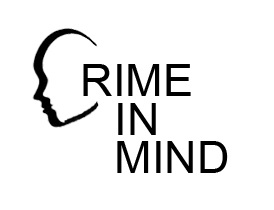Munich and Kloster Seeon 31st July – 4th August 2023
by Dr Anna S Sri (SAS Psychiatry)
This article appears in our latest newsletter (Spring 2024) which can be downloaded here.
Since the first meeting in Ghent, Belgium, in 2004, the Ghent Group, developed for European forensic psychiatrists and forensic psychiatry trainees but welcoming people from other relevant professional disciplines too, has presented annual conferences, rotating between centres in the different countries participating, and the residential seminars which are topic based and run in a former monastery in Bavaria, thanks to the support of Bildungswerke Irsee, the Universities of Munich, Cardiff and Antwerp and the Royal College of Psychiatrists’ Forensic Psychiatry Faculty. The annual seminars focus on the commonalities and differences in law, framework, training and practice in different European countries and framed as far as possible in research evidence.
As a SAS psychiatry trainee, living with Autism Spectrum Disorder (ASD), Attention-Deficit Hyperactivity Disorder (ADHD) and Dyslexia, I attended both to learn and inform. Living with more than one neurodivergent condition has many challenges, but it should not hinder an individual’s strengths and talents. This was a core theme in the seminar.
The seminar focused on the assessments and managements of the most common neurodivergent conditions (ASD and ADHD), and the CJS (Criminal Justice Pathways) in European countries for offenders living with neurodivergent conditions. The lectures focusing on Neurodiversity, Human Rights, Civil Law and the framework of Criminal Law within the EU highlighted the vast gaps of research in this area, and it is easy to recognise why we are still seeing a lack of understanding and empathy towards enforcing reasonable adjustments under the UK’s Equality Act 2010, reflective of key principles in the European Convention on Human Rights. There is fear that concerns about “missed diagnoses” and “increase in numbers diagnosed with ASD or ADHD” of high-functioning individuals would “blur” the essential criteria for these neurodivergent conditions. Indeed recognition of the conditions is rising, but this means that there should be more research investments and inputs into this area, along with the acceptance that we still don’t understand and empathise with those who are living with these conditions.

I would like to share my personal opinion that any core trainee who has an interest in Forensic Psychiatry, should attend these seminars. It is important to be reflective on how our own country’s criminal law and approach to ethics and services compare with those elsewhere in Europe. The seminar is intensive, but you will live for a week in the monastery in idyllic surroundings. You can also participate in a tour of this former Benedictine monastery, and hear about others who were there before you, not least Mozart.
The next seminar is set to take place from Monday 5th August – Friday 9th August 2024.
Research can transform lives. We want to support discoveries about what helps people with mental disorder who have been victims of criminal behaviour, or perpetrators of criminal behaviour, and their families, and the clinicians and others who treat them and, indeed, the wider community when its members are in contact with these problems. More effective prevention is the ideal, when this is not possible, we need more effective, evidenced interventions for recovery and restoration of safety.
Please help us by donating to Crime In Mind – DONATE TO CRIME IN MIND HERE

